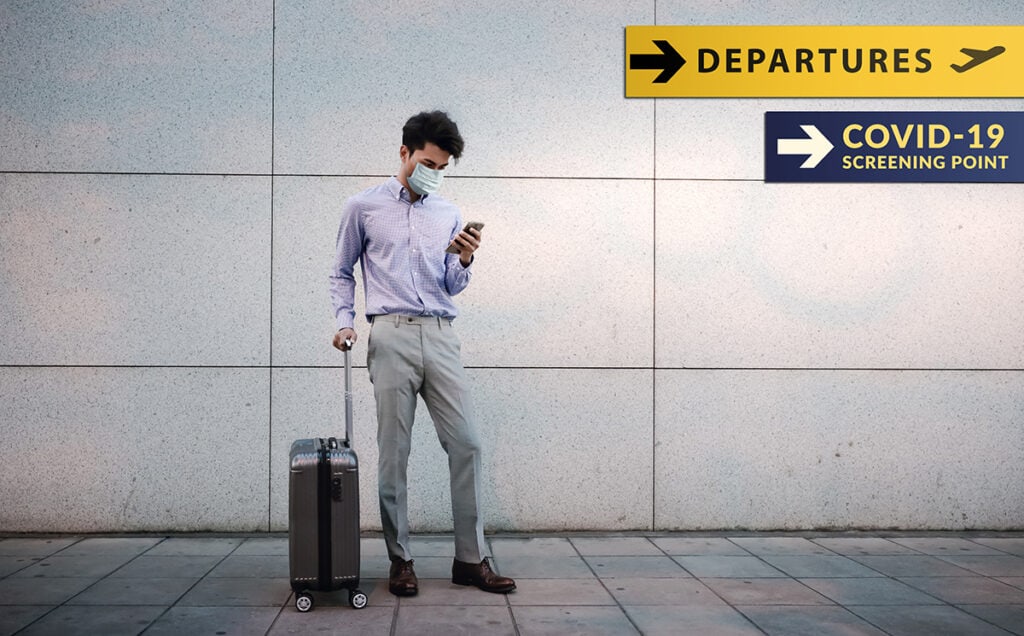With the holidays upon us, businesses need to be aware of the potential increase of employees who choose to engage in personal travel to visit family during their time away from work. With the colder weather fast approaching and gatherings being mostly held indoors, it is vital that your business has the proper policies and protocols in place that do not jeopardize the safety of your workplace.
Employers should have clearly written policies describing the expectations of their staff. While it is important to realize that it is impossible to eliminate all of your risk associated with COVID-19, such policies can help minimize liability associated with employee travel as long as such expectations are applied neutrally and uniformly. Employers should continue to evaluate and monitor CDC guidelines on travel and hotspots of COVID-19 as travel restrictions may change frequently as new outbreaks and hot spots appear in different areas of the world.
Below are some frequently asked questions, however, we encourage you to speak directly with your Human Resources team about the guidelines you would like to implement to protect your employees and your business. We hope everyone has a safe and wonderful holiday season!
May I stop an employee from traveling during the holidays?
Depending on where your business and employees are located, there may be specific state and local laws that limit the conversation around this. Generally speaking, you should never discipline or terminate an employee for engaging in lawful activity during nonworking hours. You do, however, have the right to maintain a safe work environment. This is more important than ever during the COVID-19 pandemic.
Employers can ask employees to notify their Supervisor of future travel plans prior to booking plane tickets or making any other travel arrangements so that the company can evaluate the risk in relation to their business, coworkers, and customers.
Can I require my employees to self-quarantine post travel?
Yes, employers may choose to quarantine an employee for up to 14 days upon return to work. This decision should be made based on your business, the degree of contact with other employees, and whether they are regularly interacting with a vulnerable population.
Do I have to pay my employees to self-quarantine if they are not able to work remotely?
It depends. Non-exempt hourly employees are only paid for hours worked; therefore, time spent quarantining would be considered unpaid time off. Exempt salary employees may only have salary reductions in the event they do not work for an entire workweek. However, if an employer offers a paid time off (PTO) policy, an exempt employee may use PTO for their time quarantining. In the event their PTO balance is exhausted, any full day away from work could be considered unpaid and deducted from their regular salary.
If your employee is being quarantined by a doctor or is awaiting test results, the employee may be eligible for Emergency Paid Sick Leave under the Families First Coronavirus Response Act (FFCRA). Always keep your HR team up to date on your employee’s travel and return plans so we can ensure compliance with all local, state, and federal laws.
What if my employees are not traveling but are just attending local unsafe gatherings?
Generally speaking, you cannot limit an employee’s ability to interact or engage in legal activities on their personal time. Furthermore, constantly monitoring off-duty conduct of your employees is an impossible job. Employers should instead, encourage workers to comply with mask wearing rules and social distancing when off-duty. If you have an employee that is consistently not following proper protocol during nonworking hours and their coworkers have come to you with concern regarding these actions and their safety, contact your HR team to discuss your options.
For answers to other COVID-19 or HR administration questions, go to Resources.

